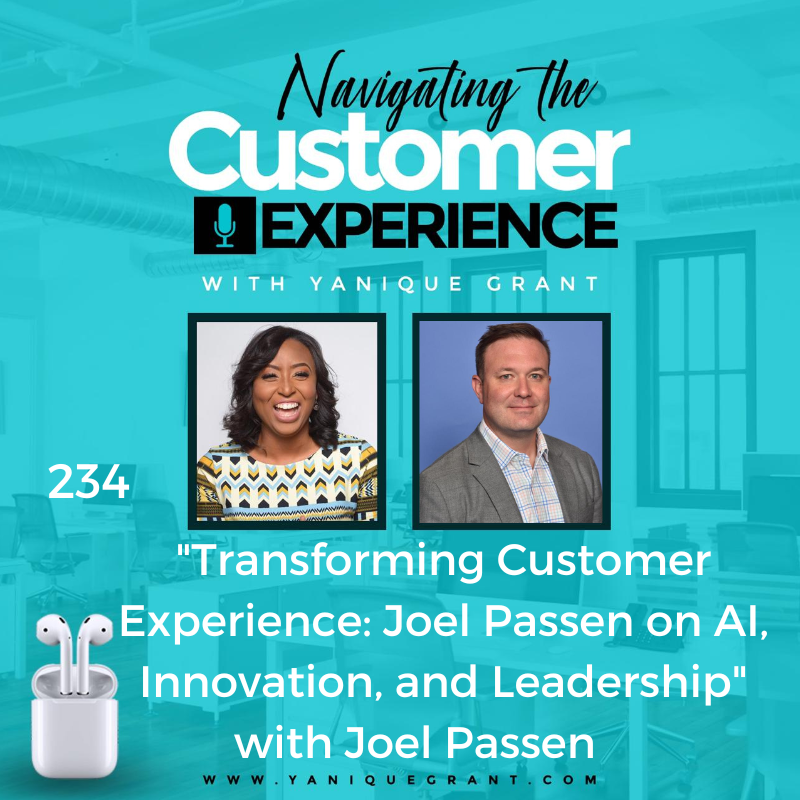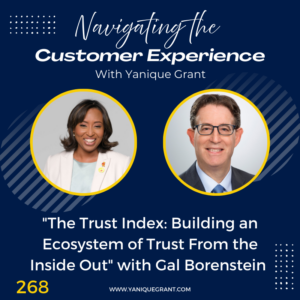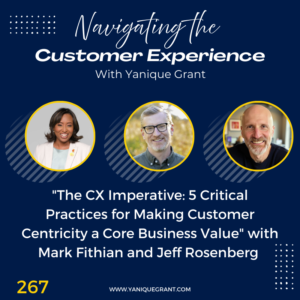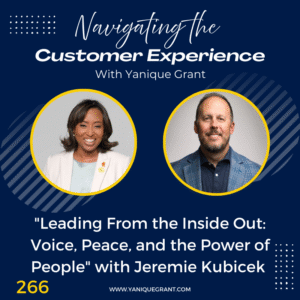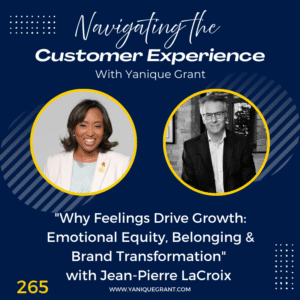Joel Passen is a proven technology entrepreneur and leader with 20+ years of success creating value and driving measurable results at the intersections of sales, business development, product strategy, operations and customer experience.
Before co-founding Sturdy, a next-gen customer experience solution that helps companies improve customer satisfaction. Joel co-founded Newton Software, a B2B SaaS company headquartered in San Francisco that was acquired by Paycor (2016). Prior to that, Joel co-founded Gravity Technologies, Inc., a company that owned and operated businesses in the talent acquisition industry, including the first recruitment processing outsourcing company focused on technical talent.
Questions
· So, could you share with our listeners, how it is that you got from where you were to where you are today?
· Could you share maybe 1 to 3 top I would say areas that you believe as an organization, especially in your industry that you believe it’s important for you to focus on or it drives your success in the space of ensuring that you’re delivering a great or a fantastic customer experience.
· If you want to maybe debunk maybe one of the biggest customer service myths that you see organizations still using as a driver in their business, when really and truly that shouldn’t be anything that they should be guided by, what would you say that is based on your observation and experience?
· Now, Joel, can you also share with us what’s the one online tool, resource, website or application that you absolutely cannot live without in your business?
· Can you also share with our listeners, maybe one or two books that you have read, it could be a book that you read recently, or even one that you’ve read a very long time ago, but it still has had a great and profound impact on you. And that can be either professional or even a personal impact.
· Now, Joel, can you also share with our listeners, what’s the one thing that’s going on in your life right now that you are really excited about? Either something you’re working on to develop yourself or your people.
· Could you tell us a little bit about your organization Sturdy, exactly what it does. And if they wanted to connect with you, or Sturdy, how they could find you online?
· Now, Joel, before we wrap our episodes up, we always like to give our guests a chance to share with our listeners, do you have a quote or a saying that during times of adversity or challenge, you’ll tend to revert to this quote if for any reason you get derail or you get off track or you get knock down and the quote kind of helps to just motivate you to get back up and to push forward and to complete whatever would have knocked you down. Do you have one those?
Highlights
Joel’s Journey
Me: So, we like to give our guests an opportunity to share in their own words, a little bit about your journey. So, could you share with our listeners, how it is that you got from where you were to where you are today?
Joel shared that he appreciates this question. So, he’s always a commercial leader, meaning he’s always had responsibility not only for net new growth, but also for responsibility for customers. And where he is today, in terms of having started a company that focuses on using AI to ultimately improve the customer experience by deeper listening to customers, he thinks for him, the journey was more of like, and this may sound a little off putting to some, but he was kind of like a frustrated engineer to a certain extent. He was a frustrated commercial person in many ways. So, he thinks the desire to sort of solve a problem that he had as an operator, a commercial operator for two decades, has led him to where he is today, which is trying to solve that problem at scale.
Areas Organizations Needs to Focus On to Ensure the Delivery of a Fantastic Customer Experience
Me: So, could you share maybe 1 to 3 top I would say areas that you believe as an organization, especially in your industry that you believe it’s important for you to focus on or it drives your success in the space of ensuring that you’re delivering a great or a fantastic customer experience.
Joel shared that he likes everything in 3, so absolutely. But the first thing is, in many ways he thinks that removing the abstraction layers between our customers, and the level of leadership within organizations that can actually do something about the issues that we’re hearing is really important. And what he means by that is, he thinks for the last 10 or 15 years, we’ve created not only technology driven abstraction layers like chatbots, and automated knowledge base stuff and it’s all sort of addressing what he would think of as a symptom, but not necessarily is the root cause of perhaps customer frustrations in terms of customer experience.
So, an example would be like if we have to continue to build these really acute knowledge bases and what we’re addressing is constant customer confusion, for example, wouldn’t it make more sense to take the data that we’re deriving about what’s confusing the customer, take it back to our product teams or services organizations, and address the root cause. So, number one is, he thinks we’ve got too many abstraction layers between us and our customers.
Like number two is, the people that are responsible for customer experience, and ultimately, you’re holding the bag and oftentimes, perhaps even the number for the board can only solve about 30% of the problems that we face around customer experience or challenges we face about customer experience within the organization. So, for example, going back to like a product or service, which ultimately, we deliver to an end user. If he’s the customer experience person, and he’s holding the bag for that number, whether it’s some sort of arbitrary number like not arbitrary, but he guesses arbitrary, like NPS or CSAT, like something that we’re being measured on, but even more importantly, a revenue number. He has to rely on his other teammates to ultimately contribute to the success of that experience. And that’s a big challenge.
And he thinks the third one is kind of an expansion on that topic, which is, he thinks that we’ve lost sight as organizations at large that everybody’s job is customer experience, providing the best customer experiences we can, whether it’s the billing team that designs processes around auto renewing, and billing customers, to the product teams that are delivering product to the services teams that are delivering services, to the sales teams that are an account management teams that are being truthful and ethical and honest about what we actually can provide in terms of value.
Debunking Customer Service Myths
Me: Now, in listening to you, I also wanted to know if you could share with us, you’ve been in the whole customer experience space, and you’re noted as a top customer experience voice on LinkedIn. If you want to maybe debunk maybe one of the biggest customer service myths that you see organizations still using as a driver in their business, when really and truly that shouldn’t be anything that they should be guided by, what would you say that is based on your observation and experience?
Joel stated that it’s going make me unpopular. He’s going to lose the popularity contest on this answer, and he’s going to treat this less like a cable news show, so, he’s not going to swear. But if you do follow him on LinkedIn, it’s not just to be incendiary. But he really thinks health scores of customers are one of the most overused, underpowered abstraction layers that people use, he thinks they’re garbage. And he’s speaking from experience, not because he has something against them, or the companies that help us build them or anything like that. It’s because too many times, he’s been in executive leadership team meetings, and he takes the board slides in, and he’s got all these green lights on maybe with their top revenue accounts, for example. And he goes back to team meetings two weeks later to go back through the account reviews, and so many times he’s gone from green to gone with no leading indicators along the way that has ever given him any kind of indication that they were in trouble. So, that’s his answer. And some people are in love with health scores, and they spent a lot of time building them, and quite frankly, he thinks they’re full of telemetry data and opinions that just don’t yield anything that he can use as an executive leader.
App, Website or Tool that Joel Absolutely Can’t Live Without in His Business
When asked about online resource that he cannot live without in his business, Joel shared GPT 4. As an early-stage entrepreneur, he feels like he spends a lot of time sifting through data, and crafting messaging. But to make a finer point, like, for example, he has a client, they’re called Hawke Media, they’re one of the largest independent ad agencies in the United States. And his outbound sales team, let’s say, wants to find more companies that are similar to these folks. And there are hundreds of these types of agencies in the United States, not of the same magnitude of Hawke Media, but similar. And when you go into LinkedIn Sales Navigator, and all these other Apollo or ZoomInfo. With all the metadata tags that are in the systems, it’s really hard to get a filtered list, for example.
So, last night, he was watching a hockey game, and he typed a simple query into GPT 4 and said, “Give me 300 companies that look and feel like this particular company that are based in the United States and then put their name in column A of a CSV and send it to me,” and it did it and it’s super accurate. And it’s that kind of stuff that it’s just mind blowing. Some of the things you can do with it. So, GPT 4, probably for him, can’t live without it.
Me: Amazing. It’s fascinating when I heard the prompt that you just gave it now. It’s very important that what you put in is what you get out almost like the quality of the question you asked determines the quality of the response that you get back. So, the fact that you are so specific in terms of what you were looking for, the teams, the column that you wanted it in, the fact that you wanted it to be for a specific geographic location, and not just to the world, and the fact that it gave you back that information, so specifically, the prompt that you put into it is so critical to the output that it gives you.
Joel stated that that’s a good point, not to scratch his back at all. But he would tell people start with being ultra specific, if you haven’t leaned into GPT.
First of all, it’s worth the 20 bucks a month for GPT 4. It’s really powerful and it can produce graphs and charts and statistical things you can enter, for example, he was working on some like a VC deck the other day for a friend of his, not for his company. But he was having a trouble with like, processing the information from his total addressable market into like a graphical form. Like he’s not a designer, he’s a spreadsheet person.
And so, he took his spreadsheet, uploaded it to his version of GPT 4 in Azure, so it’s privatized without any kind of PII in it, he paid 20 bucks a month for it. And it spit out a graphical representation that with a little bit of tweaking and the coloring could be used in a deck, it’s really great. So, there’s just some really crazy things you can do with it. But start with being more specific and dial it back, rather than starting with broad requests and commands, because then you’re going to get frustrated.
Books that Have Had the Biggest Impact on Joel
When asked about books that have had a great impact, Joel stated that he’s going to reveal that his dad is an Industrial Psychologist, PhD in Industrial Psychology. And he’s written a bunch of papers on emotional intelligence, EQ and EI. And so, he’s kind of a big fan of Dan Pink, or Daniel Pink. They are business books, so they might be a little cliche for some people. But in 2005, he wrote a book called A Whole New Mind: Why Right-Brainers Will Rule the Future, Right Brain. It’s kind of like the why right brain thinkers are the future. And he thinks there’s a lot of interesting things in there that are pretty applicable today. Despite his little claim of using GPT, which might be more of a left brained example, he’s probably a stronger right brained person with communication skills, specifically, rather than somebody that’s going to put their head in a spreadsheet all day. And he thinks there’s some really telling things and some really interesting things that people could use, both earlier in their career and even later in their career with the Daniel Pink book.
And then he thought one of the other books that he read recently, when he thought about this was “The Billion Dollar Loser : The Epic Rise and Spectacular Fall of Adam Neumann and WeWork”, written by Reeves Wiedeman, it’s the Adam Neumann story about work, he doesn’t know, if Yanique have read that. It’s actually kind of a fiery read, like, it’s a cool book. But he thinks for him, the story was really interesting, if you’re interested in business, but it also is a really stark reminder that humility is really important in business, being honest, and being humble is a marathon play, but it’s also the right play, it’ll get you to the finish line. So, he thought that was a good reminder for him and anyone else that is in business and thinking about their own sort of virtue.
What Joel is Really Excited About Now!
When asked about something that he’s really excited about, Joel shared that he’s really excited about for me, he works at a company that builds applied AI products and essentially helping businesses listen to their customers more carefully, and actively for that matter.
And he thinks what he’s most excited about is sort of the evolution of AI in an ethical way. So, one of the things if you read any of the business reports from the industry analysts and in the industry consulting firms, the Beans, you read any of the stuff from the Harvard Business Review, fairly objective sources, people are really scared about using AI in their businesses specifically, let alone personally, but he’s thinking about it in a business light.
And he thinks what’s starting to happen is that the hype is dying down a little bit and we’re starting to see a more practical light in the application of AI where it’s not so risky, and that it is truly not going to replace everybody’s jobs, it’s going to help us sift through larger and larger datasets together, so we can get to the root of very specific problems and solve for the root, going back to him at the top of the show when he talked about abstraction layer. So, for him, he’s really excited about that, more and more companies are adopting AI and doing so in an ethical, responsible, privacy conscious way. And the wild, wild west is starting to fade into the background as quickly as it grew, and he thinks that’s exciting to him, and he knows that sounds kind of nerdy, but that for him is progress.
About Joel’s Organization Sturdy and How Can Listeners Find Joel Online
Joel shared that Sturdy is very easy to find, he’ll start there, but it’s sturdy.ai. And he thinks for the relevancy of your listeners and our listeners today is, their our thesis was that ultimately, the customer experiences is really the responsibility of every team. Again, he mentioned operations services, product sales, marketing, leadership, everybody’s responsible for customer satisfaction and customer experience. And ultimately, that leads to everybody being in charge of revenue and retention. And what they’ve realized over the years as being operators of businesses is that 75% of customers expect businesses to use some sort of technology to better their experiences, like the time is now yet we have all these silos in our business.
So, what their business does, what Sturdy does is plugs into all of your data hubs where you’re collecting communications from your customers, those day-to-day interactions, those really rich meaningful, those emails, the tickets, the calls transcripts, even unstructured tests like text like surveys, they take all of that information in, privatize it. And they run language models on it to help find topics and trends to help improve the customer experience. And then make agents to deliver this data to the teams and the people and the systems that need it the most. So, that’s basically what they do. And they find that the outcomes are their customers are improving their NPS and CSAT scores almost immediately, because they’re more actively listening to their customers. But they’re also seeing pretty strong lifts in customer retention and revenue as well. So, both expansion and retention revenue.
And he’s easy to find, personally, Joel Passen as mentioned, he talks a lot about customer experience and satisfaction on LinkedIn. And you can find him on LinkedIn, he’s pretty active there. And otherwise, he just joel@sturdy.ai.
Quote or Saying that During Times of Adversity Joel Uses
When asked about a quote that he tends to revert to, Joel shared that he’s going to disappoint people, because this isn’t like super profound. But he tells his kids this too and his dad used to tell him this like, “Every day is like the first day of school, you can reinvent yourself.” The ability for humans to reinvent themselves is surreal, it’s crazy. And if he’s having a bad day, or he’s down or he’s stuck, he literally thinks about the next day and say, tomorrow’s my day, I can be whoever I want, I can solve whatever I want. He shared that he sounds like that guy on Saturday Night Live, Stuart Smalley. But reinventing, every day is an opportunity to reinvent yourself. And he thinks that’s what keeps him going and he truly believes that even if you had a bad day or a bad interaction with your family or your team or what have you, tomorrow’s a new day.
Me: Great. Thank you so much for sharing, Joel.
Thank you so much for hopping on our podcast and sharing all of these great insights as it relates to customer experience and debunking the myths in customer experience that a lot of organizations are still driven by. Also talking about your organization Sturdy and just where you see artificial intelligence going and how the adaptation is being taken more in a practical role now as all the fanfare and excitement is dying down and people are really seeing how they can integrate it in a very practical and useful way not just to eliminate human interaction but to add to the value that they are using the technology to enhance the quality of the experience that the customer is having. So, thank you so much.
Please connect with us on Twitter @navigatingcx and also join our Private Facebook Community – Navigating the Customer Experience and listen to our FB Lives weekly with a new guest
Links
• A Whole New Mind: Why Right-Brainers Will Rule the Future by Daniel Pink
The ABC’s of a Fantastic Customer Experience
Grab the Freebie on Our Website – TOP 10 Online Business Resources for Small Business Owners
Do you want to pivot your online customer experience and build loyalty – get a copy of “The ABC’s of a Fantastic Customer Experience.”
The ABC’s of a Fantastic Customer Experience provides 26 easy to follow steps and techniques that helps your business to achieve success and build brand loyalty.
This Guide to Limitless, Happy and Loyal Customers will help you to strengthen your service delivery, enhance your knowledge and appreciation of the customer experience and provide tips and practical strategies that you can start implementing immediately!
This book will develop your customer service skills and sharpen your attention to detail when serving others.
Master your customer experience and develop those knock your socks off techniques that will lead to lifetime customers. Your customers will only want to work with your business and it will be your brand differentiator. It will lead to recruiters to seek you out by providing practical examples on how to deliver a winning customer service experience!

